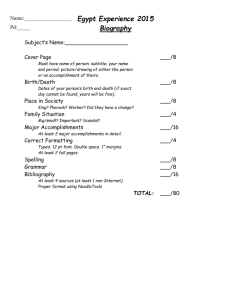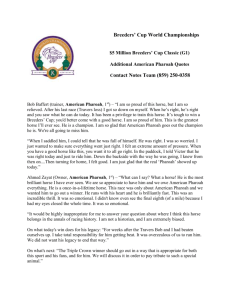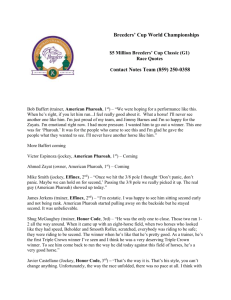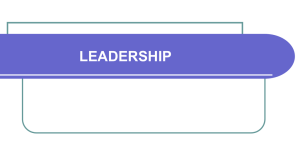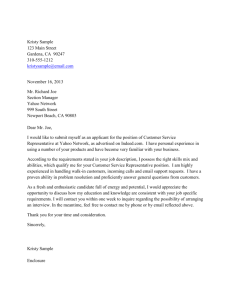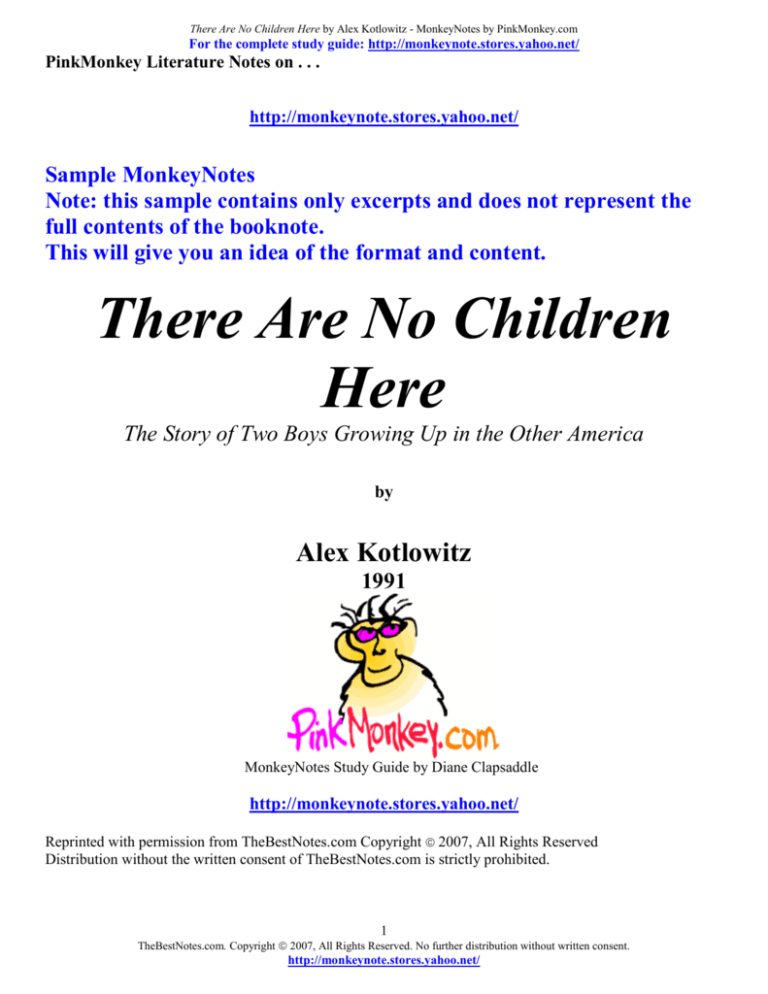
There Are No Children Here by Alex Kotlowitz - MonkeyNotes by PinkMonkey.com
For the complete study guide: http://monkeynote.stores.yahoo.net/
PinkMonkey Literature Notes on . . .
http://monkeynote.stores.yahoo.net/
Sample MonkeyNotes
Note: this sample contains only excerpts and does not represent the
full contents of the booknote.
This will give you an idea of the format and content.
There Are No Children
Here
The Story of Two Boys Growing Up in the Other America
by
Alex Kotlowitz
1991
MonkeyNotes Study Guide by Diane Clapsaddle
http://monkeynote.stores.yahoo.net/
Reprinted with permission from TheBestNotes.com Copyright 2007, All Rights Reserved
Distribution without the written consent of TheBestNotes.com is strictly prohibited.
1
TheBestNotes.com. Copyright 2007, All Rights Reserved. No further distribution without written consent.
http://monkeynote.stores.yahoo.net/
There Are No Children Here by Alex Kotlowitz - MonkeyNotes by PinkMonkey.com
For the complete study guide: http://monkeynote.stores.yahoo.net/
KEY LITERARY ELEMENTS
SETTING
The story is set in Henry Horner Homes (a low-income public housing project), ("the projects") and the
surrounding neighborhoods in the inner city of Chicago, Illinois. The time frame of the novel is……
LIST OF CHARACTERS
Major Characters
Lafeyette Rivers - He is one of two brothers who live in the projects of Chicago and who are the subject of Alex
Kotlowitz’s exposé of life for the children of the run-down inner city. Lafeyette is the one who is most affected
by the dying of his dreams and the loss of his friends to violence.
Pharoah Rivers - He is the other brother and the one who is most outwardly sensitive to life in the inner city.
He worries whether he will grow up, is easily reduced to tears, and hides behind his youth to avoid worrisome
situations. He is also the more intelligent of the two brothers and will no doubt be more successful in escaping
the life he despises in the projects.
LaJoe Rivers - The boys’ mother, LaJoe is a deeply emotional person who hates the life her children must
endure. She worries constantly about them and is their rock. She, too, however, feels the stress of life where she
frequently hears gunfire and even has bullet holes in her apartment walls. She always finds a way to…….
Many additional major and minor characters are identified and discussed in the complete study guide.
CONFLICT
Protagonist - The protagonist of a story is the main character who traditionally undergoes some sort of change.
The protagonists of this book are Lafeyette and Pharoah. Together they face many obstacles that young black
boys endure living in the inner city of Chicago. They have different ways of coping, but ……
Antagonist - The antagonist of a story is traditionally the force that provides an obstacle for the protagonist.
The antagonist does not always have to be a single character or even a physical character at all. The antagonists
in this book are many: the social system that creates impoverishment for minorities; the……
Climax - The climax of a plot is the major turning point that allows the protagonist to resolve the conflict. The
climax of this story occurs when Lafeyette is arrested for vandalizing a car, a crime he…….
Outcome - Lafeyette is sentenced to a year’s probation and 100 hours of community service. The author gets
both boys into a private school even though Lafeyette is unable to meet the challenge and returns to public
school. Pharoah thrives in the school’s atmosphere, getting good grades and learning to overcome his tendency
to daydream and forget his responsibilities. Rickey begins running drugs for one…….
SHORT PLOT / CHAPTER SUMMARY (Synopsis)
Lafeyette and Pharoah are two brothers growing up in the horrors of inner city Chicago in a low-income public
housing project in 1987. The author asks their mother for permission to follow their lives for two years as a way
of exposing life in “the other America.” He follows and catalogs their disappointments, joys, and tragedies…..
THEMES
Parts of America are War Zones - The first important theme is: parts of America are warzones. Inner city
Chicago as examined in this book is a place where children live in sub-standard housing, often with only one
parent (usually their mother), and who face gang violence everyday. They frequently have little to eat, do poorly
2
TheBestNotes.com. Copyright 2007, All Rights Reserved. No further distribution without written consent.
http://monkeynote.stores.yahoo.net/
There Are No Children Here by Alex Kotlowitz - MonkeyNotes by PinkMonkey.com
For the complete study guide: http://monkeynote.stores.yahoo.net/
in school, have a miniscule support system, and are let down by their own government. Their futures are bleak
and the rest of America would rather hide its head in the sand and pretend these children are doing fine.
The Ravages of Poverty - The second important theme involves the ravages of poverty. The
Rivers family is in a “Catch-22:” they will never escape the projects without a good……..
Additional themes are identified and discussed in the complete study guide.
MOOD
The mood is almost entirely dark and gloomy because of the daily existence the two boys face. However, there
are moments of hope such as Pharoah’s second place in the spelling bee, Dawn’s graduation from…….
BIOGRAPHY OF ALEX KOTLOWITZ
Alex Kotlowitz was born and raised in New York City. He is the son of an author with four novels to his credit
(Robert Kotlowitz) and a social worker mother. His mother Billie, who died in 1994, ran the Thematic Studies
Program at John Jay College. His brother, Dan, is a professor of Theatrical Lighting Design at Dartmouth. Alex
attended and graduated from Wesleyan University in Middletown, Connecticut.
Prior to working for the Chicago bureau of the Wall Street Journal beginning in 1984, he worked on an Oregon
cattle ranch for a year and then contributed to a local alternative newspaper "The Lansing Star", in Lansing,
Michigan for a year. For the next five years he freelanced, writing articles and contributed to The MacNeilLehrer Newshour on PBS television, the New York Times, and National Public Radio. His focus……
CHAPTER SUMMARIES WITH NOTES AND ANALYSIS
ENTRE
Summary
The book is preceded by two poems: Langston Hughes’ “A Dream Deferred” and one about children by Henry
Wadsworth Longfellow. In both, the reader is made to think about a world where one’s dream is destroyed and
where children are lost. What are the consequences, Hughes seems to ask, if we continually destroy the dreams
of the children who are born in the worst conditions our country has to offer? What kind of explosion are we
allowing to build up? Longfellow says that if children disappear, are made to grow up long before their time, we
can expect that we’ll see a desert behind us and darkness in front of us. In both cases, the poets are attempting to
awaken the reader’s sense of outrage that children are made to suffer needlessly, also the goal of the author of
the book.
PREFACE
Summary
In the Preface, the author explains how he met Lafeyette and Pharoah when he was asked to write the text for a
photo essay a friend was doing on the children in poverty in Chicago. The friend had met them at the local
social services agency, and Mr. Kotlowitz went to their home to interview them. He had a number of children to
interview, but he was unnerved at the time at the relentless violence that Lafeyette described. The boy was only
ten years old and already spoke in terms of “if he grew up” rather than “when he grew up.” He wasn’t sure he
would make it to adulthood. Kotlowitz also explains that the title of his book came from LaJoe, the mother of
the boys, who when asked if he could write about her children, told Kotlowitz, “But you know, there are no
children here. They’ve seen too much to be children.” Kotlowitz goes on to explain that one in every three
children in Chicago lives in poverty, a higher number than the national average, and by the time they have
entered adolescence they have experienced more terror than most people confront in a lifetime. LaJoe comes to
accept the idea of a book, because she feels it’s important to tell their stories. She had once said that she
occasionally wished she were deaf, because there was so much noise from guns, screaming, and shrieking that
3
TheBestNotes.com. Copyright 2007, All Rights Reserved. No further distribution without written consent.
http://monkeynote.stores.yahoo.net/
There Are No Children Here by Alex Kotlowitz - MonkeyNotes by PinkMonkey.com
For the complete study guide: http://monkeynote.stores.yahoo.net/
she thought it would drive her insane. The book therefore becomes a way to make us all hear, make us all stop
and listen. So it turns out to be a narrative which follows the boys for two years as they face many obstacles in
their search for some inner peace. It doesn’t have a neat and tidy ending, but it is a beginning, the dawning of
two lives, and the story of two brothers and two friends.
Notes
The Preface, although important for explaining how the book came to be, is more important for setting the
stage. As we begin to delve into Lafeyette and Pharoah’s stories, we already know that it won’t be something
we particularly want to hear. However, it is something we need to listen to, think about, and hopefully, become
galvanized to help change.
SUMMER 1987
CHAPTER ONE
Summary
In this chapter, Pharoah is nine years old and Lafeyette is almost twelve. They are making their first visit to this
particular set of railroad tracks on a warm Saturday afternoon in early June. There are five tracks in all, leading
from the western suburbs of Chicago. From this high point in the city, Pharoah can see the downtown skyline,
his own home, a red brick, seven-story building, his elementary school, and the towering spire of the First
Congregational Church. He is also distracted from the view by the small amount of nature present here – a
butterfly and wildflowers that grow along the rails. Also with the boys are Porkchop, their younger cousin and
Pharoah’s best friend, and James Howard, Lafeyette’s close friend. They are each carrying a crowbar or other
tool for digging, because they are looking for snakes. An older friend named William had nabbed one the
summer before and allowed the boys to touch it and hold it. Of course, that memory is tempered by the
realization that William is another statistic of the projects. He died when a friend accidentally shot him with a
gun he believed was unloaded. They also try searching in a ten-foot-high stack of worn automobile tires and an
empty boxcar. The boxcar quickly becomes refuge from a commuter train heading their way. The children had
heard that the suburb-bound commuters would shoot at them for trespassing on the tracks. Pharoah finds
himself crouching in the weeds nearby as the train whisks by him. He becomes lost in his thoughts and doesn’t
want to leave this place with its smell of flowers and a diving sparrow in the sky. They are not ready to stop for
the day, but the sun is going down and the place is dangerous at night. They slide down and begin the long trek
for home.
Notes
This chapter best presents the kind of impressionable child that Pharoah is. He loves the smell of the
wildflowers, the flight of the butterfly, and the diving momentum of the sparrow. In later months, he will recall
this place as one of tranquility and he will come to savor this sanctuary when he most needs to escape reality.
Another important aspect of this chapter is the contrast of the gentle sanctuary to the memory of William’s
violent death. This is the rule rather than the exception in these boys’ lives.
CHAPTER TWO
Summary
The Henry Horner Homes are known to the children as the “Hornets” or “the projects” or simply the “jects”
(pronounced jets). However, to Pharoah they are known as “the graveyard.” Nothing here is as it should be.
There is no enclosed lobby to the building. There is a dark tunnel cutting through the middle. All the first floor
mailboxes have been broken into, and there is so little outside lighting that the residents carry flashlights. Even
the summer itself turns duplicitous: during Lafeyette’s twelfth birthday, gunfire breaks out. As the eldest, he
makes the children hold their heads down until the shooting subsides, and then they crawl back to their homes.
In the process, Lafeyette loses all but fifty cents of the eights dollars he had received for his birthday to buy
radio headphones.
4
TheBestNotes.com. Copyright 2007, All Rights Reserved. No further distribution without written consent.
http://monkeynote.stores.yahoo.net/
There Are No Children Here by Alex Kotlowitz - MonkeyNotes by PinkMonkey.com
For the complete study guide: http://monkeynote.stores.yahoo.net/
The one constant in the children’s lives is their mother, LaJoe. She is known for her warmth and generosity, but
the neighborhood, which hungrily devours its children, has taken its toll on her as well. So many of the women
of the projects must be like LaJoe: grandmothers by their mid-thirties, and great-grandmothers by their midforties. They nurture and care for their boyfriends, former boyfriends, sons, grandsons, and great-grandsons.
LaJoe had once been so pretty as to try modeling for a while, and she is still attractive enough to receive
whistles on the street. However, the confidence of her youth has left her. She has watched the neighborhood
slowly decay when businesses moved to the suburbs and the city lost a third of its manufacturing jobs. To her, it
has become a “black hole.” She can more easily recite what isn’t there than what is. There are no banks, no
public libraries, no movie theaters, no skating rinks, no bowling alleys. There are only two clinics and both will
close by 1989. The infant mortality rate exceeds that of Chile, Costa Rica, Cuba, and Turkey. There is also no
rehabilitation center even though drug use is rampant.
Furthermore, LaJoe feels that her family has mostly let her down. Her three oldest have disappointed her, as all
three have been in jail at least once and all have been involved with drugs. The oldest, LaShawn, has worked as
a prostitute from time to time. The next child, Paul, named after his father, has served time in an Indiana prison.
The third one, Terence, is the greatest disappointment of all, because she is closest to him. He’s only seventeen,
but had begun selling drugs at the age of eleven and had been in and out of trouble ever since.
She also has a set of four-year-old triplets, Timothy, Tiffanie, and Tammie. All eight of her children have the
same father to whom LaJoe has been married for seventeen years. Unfortunately, they have fallen out of love,
and he lives at home only sporadically. In his absence, she turns to Lafeyette as her confidant. She relies on him
as much as the younger children do. He had been a carefree child, a bit of a ham, and he loved to draw, but over
the past year, he has begun to change. He had been caught shoplifting and has been placed in the Chicago
Commons’ Better Days for Youth program. He’s also become bossy around the younger children, because he
worries so much about them.
Pharoah is different from all the children. His only friend is Porkchop, and he clutches on to his childhood with
the vigor of a tiger gripping its meat. Frequently, he becomes so lost in his daydreams that LaJoe has to shake
him back to reality. However, these flights of fancy seem to help him fend off the ugliness around him. He
giggles at the slightest jokes and cries at the smallest of tragedies. He has developed a slight stutter, but he
delights in the attention of his elders who adore him. He is also the delight of Lafeyette who treats him like a
friend as well as a brother.
LaJoe is aware that she is not alone in raising children who grow old quickly, but she is determined that the
hopelessness and despair that others have given in to will not affect Lafeyette and Pharoah. However, she is also
a realist, and that summer she begins paying $80 a month for burial insurance for her youngest five children.
Lafeyette has always promised his mother that he won’t allow anything to happen to Pharoah, but for one brief
moment he loses him. Three days after his birthday, gunfire breaks out again. Lafeyette and his mother hustle
the triplets onto the floor of the hallway in the apartment building, a drill they have practiced many times. Two
rival drug gangs are firing at each other from one high-rise to another. Lafeyette loses track of Pharoah who he
finally sees taking cover behind trees and fences. LaJoe won’t allow him to go after Pharoah. Meanwhile,
James, Lafeyette’s friend, meets up with Pharoah, and they sprint for the apartment door. They scream to be
allowed in, but no one hears them over the gunfire, and they have to run to a friend’s apartment upstairs. The
police have taken cover as well, thinking they are the targets. Passersby lie motionless on the ground. Then, as
suddenly as it begins, the gunfire stops, and amazingly, no one is hurt. The police tell a reporter who calls about
the gun battle that there is no record of a shoot-out. However, Lafeyette knows and so does Pharoah.
Notes
This chapter emphasizes two major ideas: how poverty and gang warfare affect the residents of Henry Horner
5
TheBestNotes.com. Copyright 2007, All Rights Reserved. No further distribution without written consent.
http://monkeynote.stores.yahoo.net/
There Are No Children Here by Alex Kotlowitz - MonkeyNotes by PinkMonkey.com
For the complete study guide: http://monkeynote.stores.yahoo.net/
and how disappointing LaJoe’s children have been to her. The neighborhood around Henry Horner is a war
zone, and as a result, business and community resources have been lost. The children grow up in an atmosphere
that is no better than children in the Middle East or in Kosovo is. Yet, this is America! The atmosphere and lack
of hope in this environment have contributed to the failures of LaJoe’s children. She mourns for what might
have been……..
OVERALL ANALYSES
CHARACTER ANALYSIS
Lafeyette Rivers - Lafeyette is the ultimate example of the dream deferred. He is one of two brothers who live
in the projects of Chicago and who is the subject of Alex Kotlowitz’s exposé of life for the children of the inner
city. Lafeyette is the one who is most affected by the dying of his dreams and the loss of his friends. He faces in
the beginning of his adolescence more tragedy than most adults face in a lifetime. He sees……
Pharoah Rivers - He is the other brother and the one who is most sensitive to life in the inner city. He worries
about whether he will grow up, is easily reduced to tears, and hides behind his youth to avoid worrisome
situations. He is also the more intelligent of the two brothers and will no doubt be more successful in escaping
the life he despises in the projects. He is a delightful little kid, with buckteeth and ……
LaJoe Rivers - The boys’ mother, LaJoe is a deeply emotional person who hates the life her children must
endure. She worries constantly about them and is their rock. She, too, however, feels the stress of life where she
frequently hears gunfire and even has bullet holes in her apartment walls. She always finds a way to bring a
little cheer into their lives even as she prepares them for the possibility of a future as…….
Additional major characters are analyzed in the complete study guide.
PLOT STRUCTURE ANALYSIS
The plot is divided into sections beginning with a Preface explaining the author’s purpose in writing the book,
followed by sections named with seasons and years. It begins with Summer of 1987 and ends with September
29, 1989. Each section is then divided into 31 separate chapters. There is also an…….
THEMES - THEME ANALYSIS
Parts of America are War Zones - The theme of parts of America are war zones is so important to the purpose
of Kotlowitz’s story. Just as if a reporter had gone to Beirut or Gaza City or Kosovo or Darfur, he would find
the same kind of children that he could find in the projects of Chicago, Illinois, USA. These children have lived
through so much violence that they can be easily labeled with Post Traumatic Stress Disorder. And this is
America! Kotlowitz examines how the violence, the poverty, and the hopelessness of the inner city affects two
little boys, who growing up under other circumstances, would be real success stories. Children should not have
to grow up like Pharoah and Lafeyette. They shouldn’t have to depend on the……
The Ravages of Poverty - The theme of the ravages of poverty runs throughout the narrative. Those who are its
victims are trapped in a vicious cycle from which they cannot seem to escape. Most of the people in the projects
have dropped out of school and have few skills that would make them desirable employees. As a……
Additional themes are analyzed in the complete study guide.
AUTHOR’S STYLE
Alex Kotlowitz is a reporter, and as such, he creates a narrative that is much like reading a newspaper. His prose
is sparse and to the point without much philosophizing. He leaves most conclusions about what …….
6
TheBestNotes.com. Copyright 2007, All Rights Reserved. No further distribution without written consent.
http://monkeynote.stores.yahoo.net/
There Are No Children Here by Alex Kotlowitz - MonkeyNotes by PinkMonkey.com
For the complete study guide: http://monkeynote.stores.yahoo.net/
RISING ACTION
The rising action begins with the boys’ trip to the railroad tracks, which leaves a lasting impression on Pharoah
and ends with Lafeyette’s arrest for vandalizing a car.
FALLING ACTION
The falling action can be found in the Epilogue where the author tells the fates of all the important ……
POINT OF VIEW
The point of view is third person omniscient. The author has total control of the narrative and tells it, with the
exception of the Preface and the Epilogue, as if he is god-like. In the Preface and …….
OTHER ELEMENTS
FORESHADOWING
There are several other literary devices that pop up at various times in the story. One is foreshadowing which
frequently presents clues of something that will happen later in the novel. Some examples of foreshadowing
include:
1. LaJoe assertion that you can smell the coming of death in the fetid pools of water, the garbage, or rotting cat
carcasses foreshadows Bird Leg’s murder…….
IRONY
One of the most important elements to note is irony – when something happens, or is seen, or is heard that we
may know, but the characters do not, or that appears opposite of what is expected. Some examples of irony
include:
1. It is ironic that Henry Horner Homes sit so close to downtown Chicago that all the important white people
and tourists could watch from the Sears Tower as Lafeyette ducks gunfire on his birthday.
2. Lafeyette cautions Pharoah about Rickey who could get him in trouble, but in the end, Lafeyette begins to
hang out with Rickey himself……..
IMPORTANT QUOTATIONS - QUOTES AND ANALYSIS
The following quotations are important at various points in the story (Anchor Books Edition, 1991):
1.
“If I grow up, I’d like to be a bus driver.” (pg. x; Lafeyette made this statement when he was ten,
indicating that to children in the projects, life is very tenuous.)
2.
“But you know, there are no children here. They’ve seen too much to be children.” (pg. x; LaJoe makes
this statement when the author proposes a book about her children.)……..
SYMBOLISM / MOTIFS / IMAGERY / SYMBOLS
Other elements that are present in this novel are symbols and metaphors. Symbols are the use of some
unrelated idea to represent something else. Metaphors are direct comparisons made between characters and
ideas. There are many symbols and metaphors used by the author such as:
1.
The neighborhood around the Horner Homes is described as a metaphor of a beast devouring its children.
2.
LaJoe thinks of the neighborhood as a black hole…….
IMPORTANT / KEY FACTS SUMMARY
Title: There Are No Children Here: The Story of Two Boys Growing Up in the Other America
Author: Alex Kotlowitz
Date Published: 1991
7
TheBestNotes.com. Copyright 2007, All Rights Reserved. No further distribution without written consent.
http://monkeynote.stores.yahoo.net/
There Are No Children Here by Alex Kotlowitz - MonkeyNotes by PinkMonkey.com
For the complete study guide: http://monkeynote.stores.yahoo.net/
Meaning of the Title: It refers to the comment LaJoe, the mother, makes when Kotlowitz asked her permission
to write a book about her children and how they are growing up in the projects. She says there are no children
here, because they have seen and experienced too much to be children anymore.
Setting: Henry Horner Homes and its surrounding neighborhoods, Chicago, Illinois, from the summer of 1987
through September 29, 1989
Protagonist: Lafeyette and Pharoah Rivers…..
STUDY QUESTIONS - MULTIPLE CHOICE QUIZ
1.
2.
c.
The railroad tracks are for Pharoah
a. only a place to catch snakes .
b. a place that represents respite from his life.
c. a place to see all of the city of Chicago.
The children call their home
a. Horners.
b. jects.
hell-hole…….
ANSWER KEY
1.) b 2.) b 3.) c 4.) a 5.) a 6.) b 7.) a 8.) c 9.) b 10) c 11.) b 12.) a 13.) a 14.) c 15.) b
ESSAY TOPICS - BOOK REPORT IDEAS
1. Pharaoh is determined to hold onto his childhood at any cost. What metaphor is used to describe this
determination? Using several examples, show how he hides behind this idea.
2. Lafeyette tells his mother at one point that he is “just tired.” Explain what he means and how he came to feel
this way……..
END OF SAMPLE EXCERPTS
For the complete study guide: http://monkeynote.stores.yahoo.net/
Copyright ©2007 TheBestNotes.com.
Reprinted with permission of TheBestNotes.com. All Rights Reserved.
Distribution without the written consent of TheBestNotes.com is strictly prohibited.
8
TheBestNotes.com. Copyright 2007, All Rights Reserved. No further distribution without written consent.
http://monkeynote.stores.yahoo.net/

